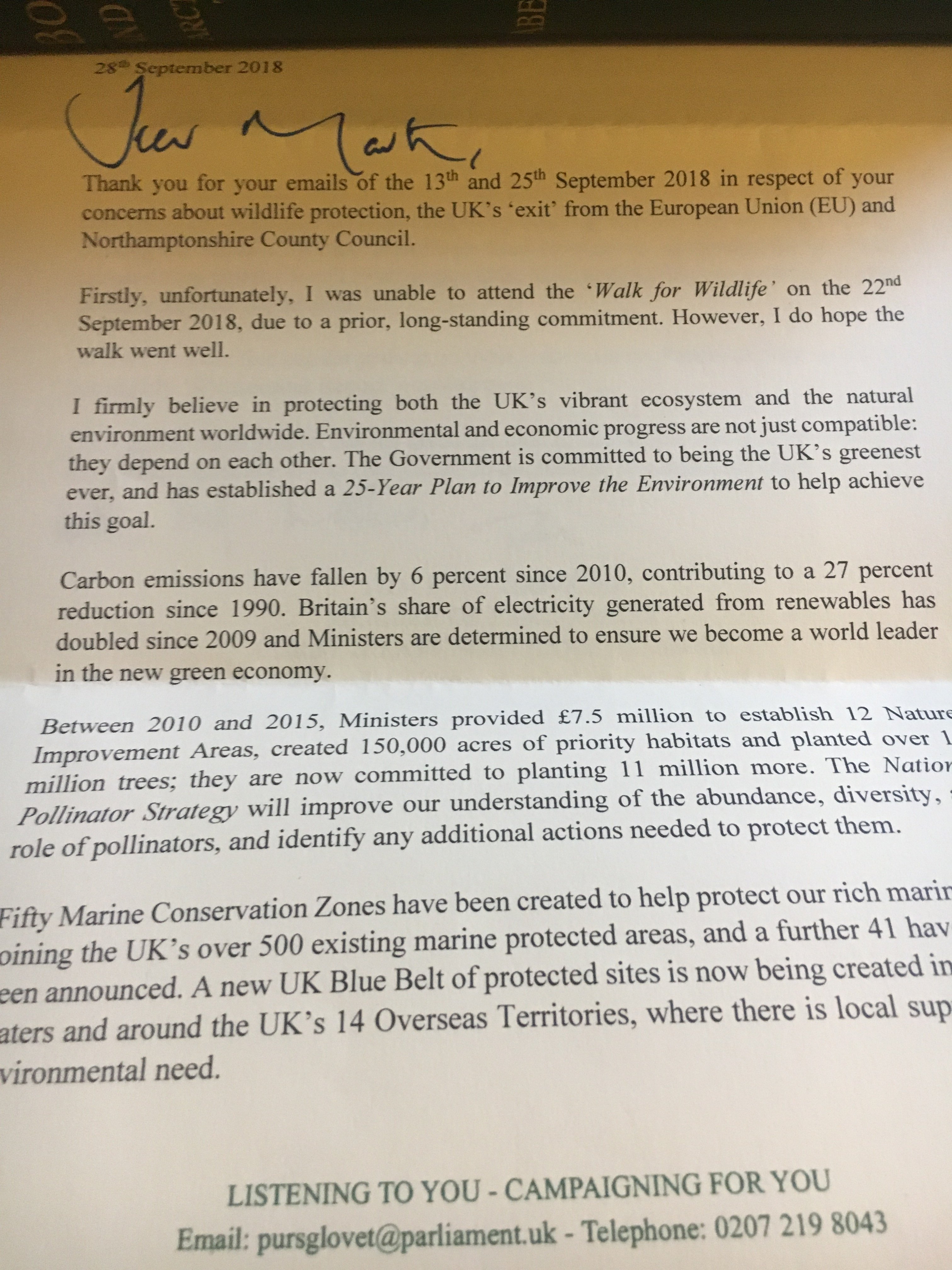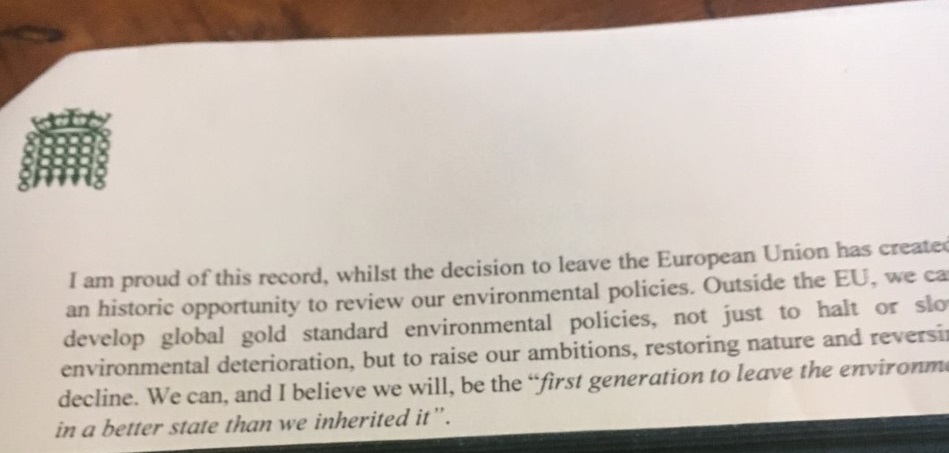
Conservative MPs are obviously important players in what happens to the environment and wildlife. The Conservative Party is the largest single party in the Westminster parliament and forms the government, albeit with the flagging support of the DUP.
Conservative MPs can, if they so choose, influence what Michael Gove does – for good or ill.
By engaging your Conservative MP you can get them to influence the actions of this Government and influence what the next Conservative Party manifesto says about wildlife. If you write to your MP you are doing your bit to help nature – and it’s easy and quick. And I can’t write to your MP and expect any reply – but you can. I’ve written to my MP – please write to yours.
The responses I’ve seen so far from Conservative MPs have either been dismissive – basically saying that the Manifesto for Wildlife is pretty worthless – or have avoided saying anything substantial about it at all and instead have responded with ‘good’ things that the Government has done for the environment.
In the former category are Sir Oliver Letwin’s brush off ‘I am afraid I think it is not a very balanced or convincing document‘ but without any supporting evidence. Sir Oliver’s constituent has got back to him asking for a proper analysis and asking him to use his good influence to ensure that Michael Gove meets Chris Packham and others to discuss how the government might take forward some aspects of the document.
The more oblique responses, like that of my own MP, simply contain a series of paragraphs about what a good job the Government is doing without addressing the suggestions in the Manifesto for Wildlife.
I’ve seen several examples of the paragraph on climate change, on tree planting, on neo-nicotinoids, on Nature Improvement Areas, 25-year plan, greenest government etc etc much along the lines of what I received from Tom Pursglove. Many MPs are working from the same crib sheet.


These examples should be challenged whenever they are used (and indeed there is already some evidence of rowing back) and they form a very effective handle for your response to your MP.
Put yourself in the position of your MP. You get a letter or email about some walk in a London park and some document about wildlife. You ask around and are given some standard paragraphs to use as a response – and you hope that’s it. Imagine then, your surprise when you are told that your letter contains errors and is misleading, and moreover your letter didn’t address the questions asked. You signed it, the letter went out from your office under your name – you now feel a bit wounded that you were given something inadequate to use and that your constituent has rumbled you. This is how, as a constituent, you can engage your MP in the subject and influence the types of response that will be sent out to other constituents. Go on – they work for you! Get stuck in in a polite but firm way.
This is what I sent to my MP in response to his first reply to me. I’m looking forward to his response. It’s a good idea to ask some questions and be clear that you expect answers to those questions. Imagine you are writing a letter of complaint to a slippery retailer – you should expect your MP to be more honest, more responsive and more eager to please you than any retailer.
Tomorrow, some analysis of responses from Labour MPs and how you might respond to them.
The claims about carbon emissions falling are false. These calculations are based purely on emissions created in the UK and do not include consumption emissions, where goods are manufactured overseas for UK consumers. Britain’s manufacturing has been steadily transferred overseas. In other words the carbon emissions for manufacturing goods for the UK in China, appear on China’s emissions, total, not the UK’s emission figures.
This gives the false impression that carbon emissions are rapidly falling in developed countries. When in fact what is really happening is that manufacturing is being transferred to countries with lower wages and lower energy production costs (often using coal). What matters is overall carbon footprint, not national emissions.
What’s more if you look at per capita carbon footprint it reveals a very different picture to national emissions totals. In national emissions China’s figures look by far the highest. But in terms of per capita carbon footprint, China has far lower figures than the US and I believe about half that of the UK going on 2015 figures, the most recent I could find.
Therefore the apparent success of the UK in reducing carbon emissions is nearly all down to creative book keeping, and not a real lowering of our carbon footprint. These problems really cannot be addressed by spin and PR.